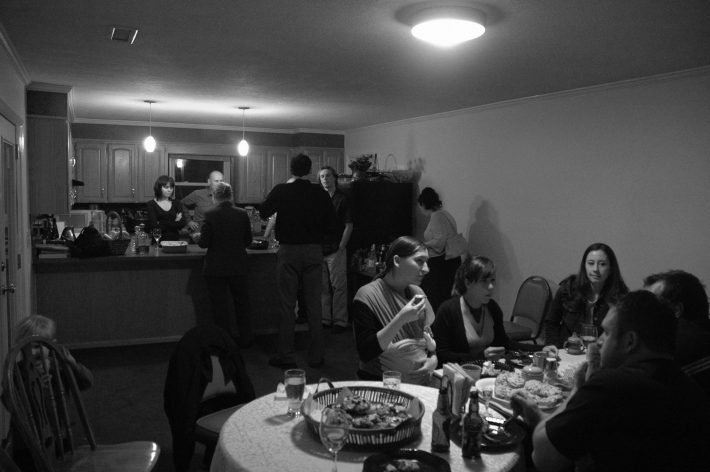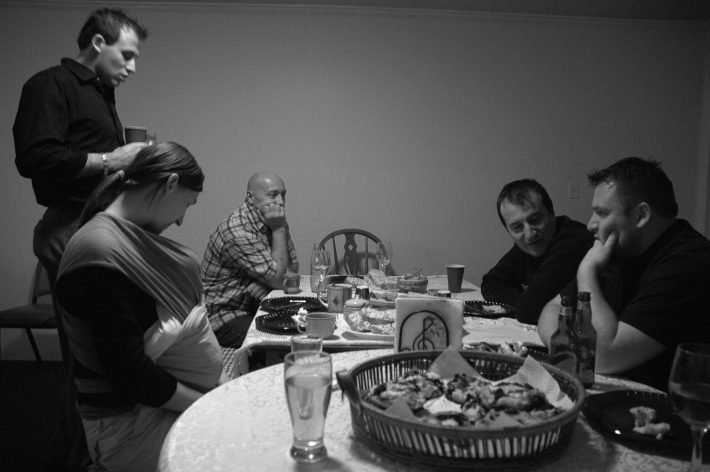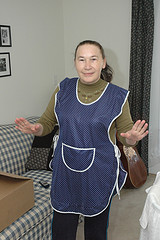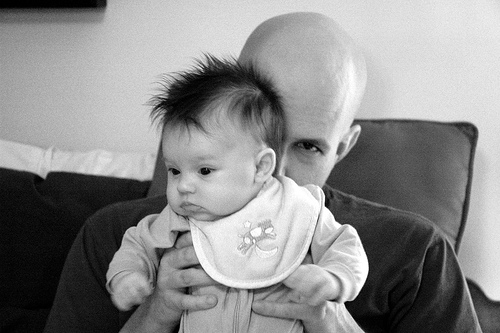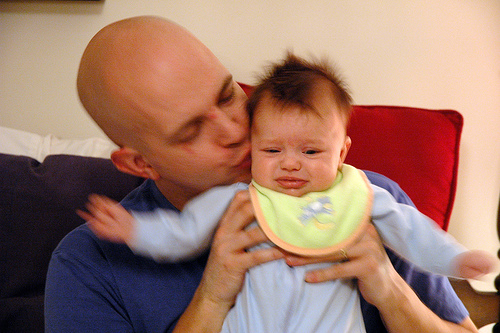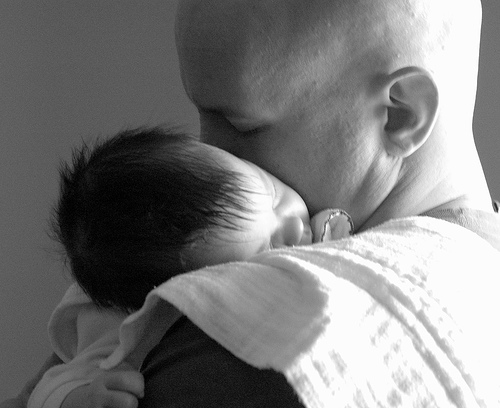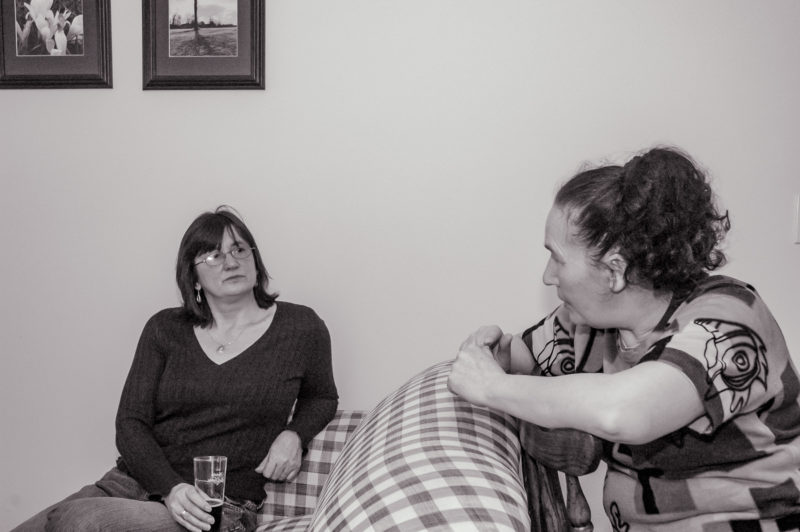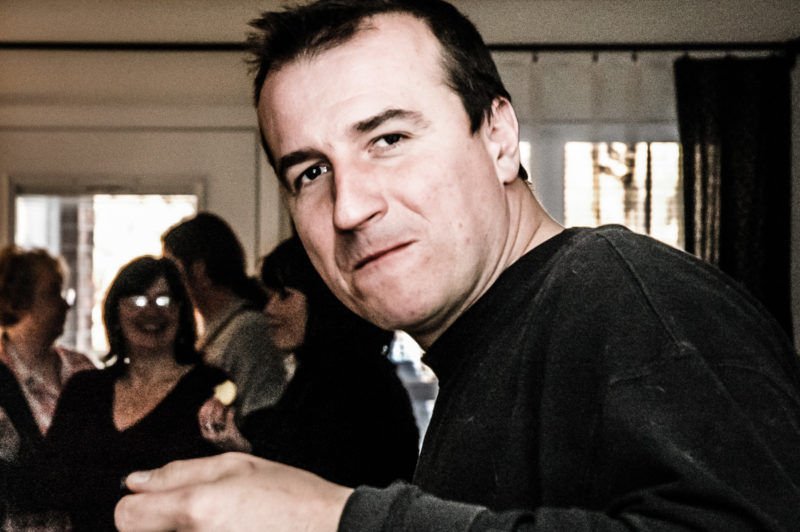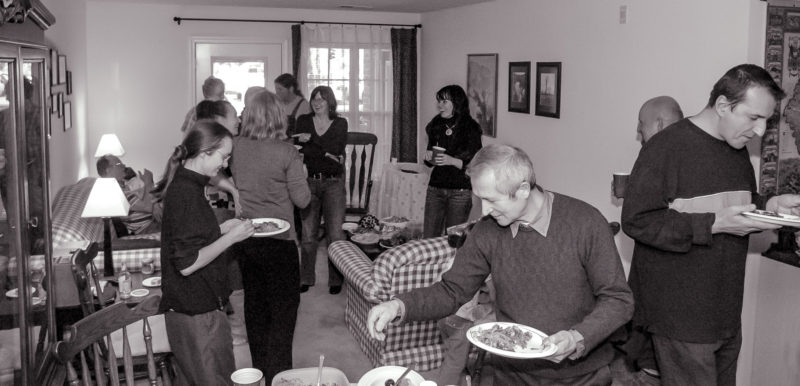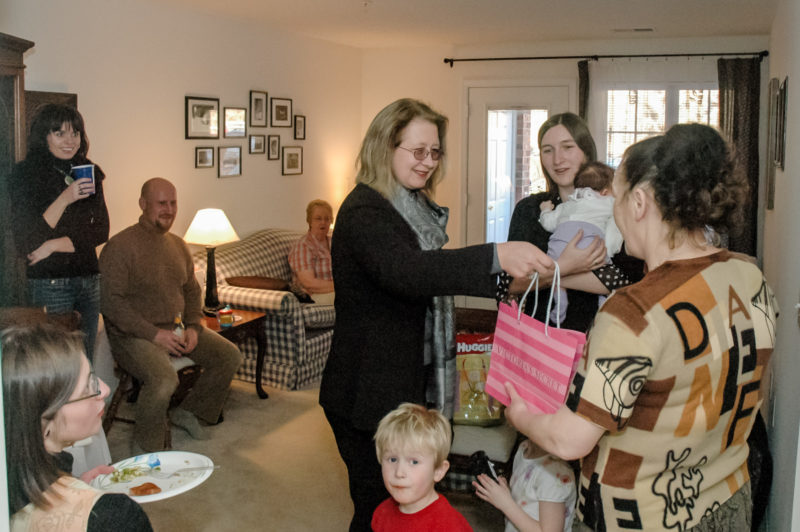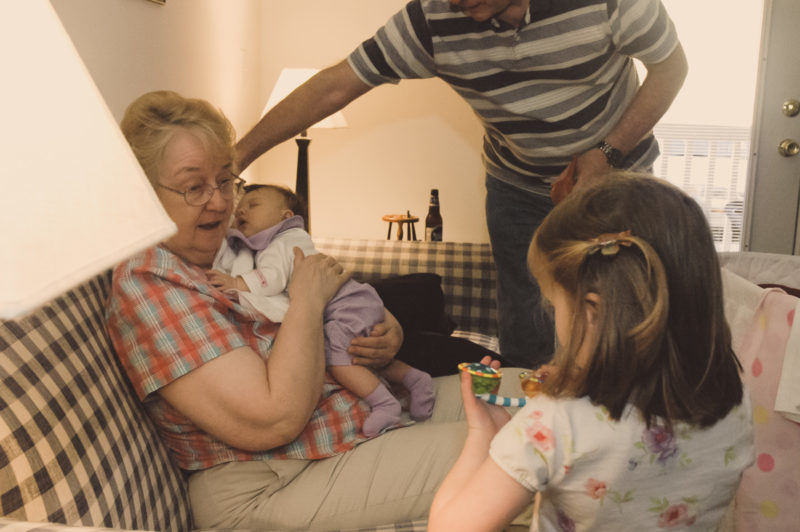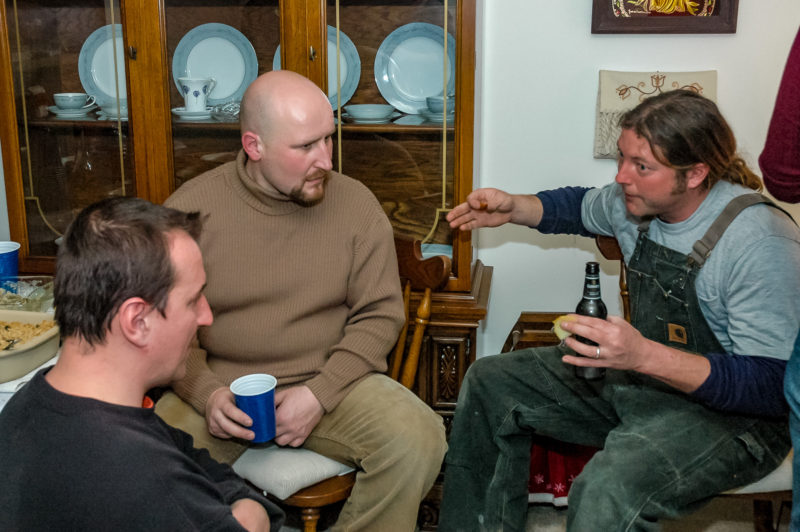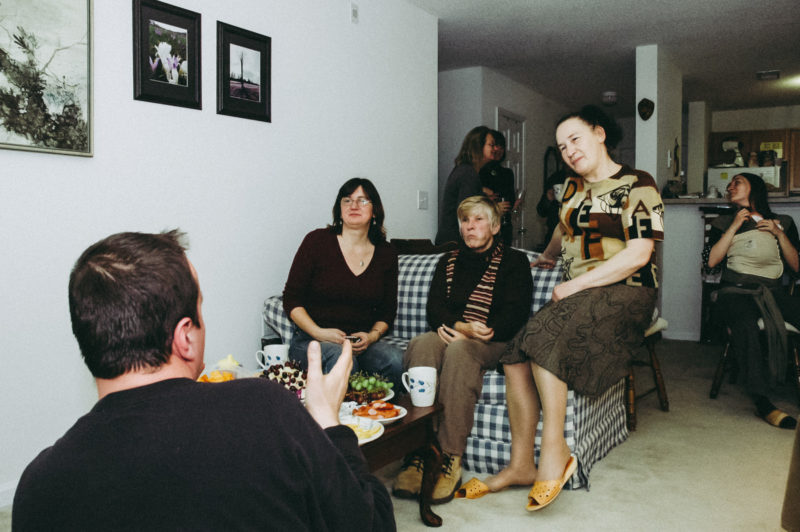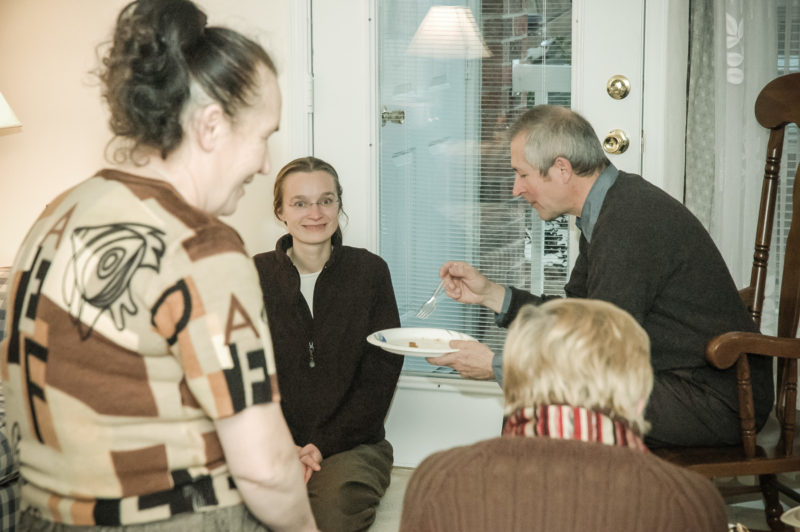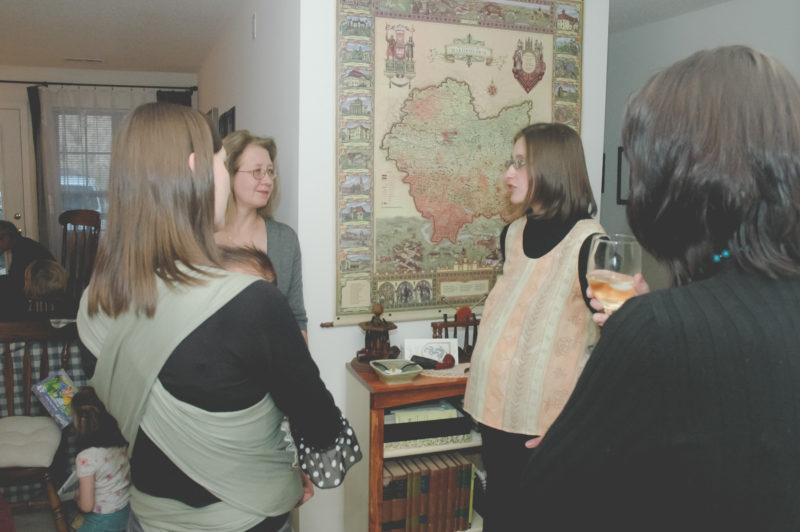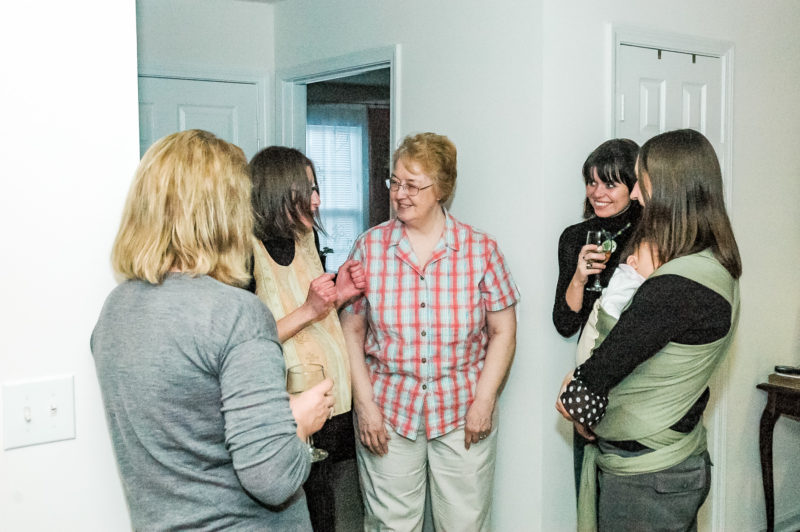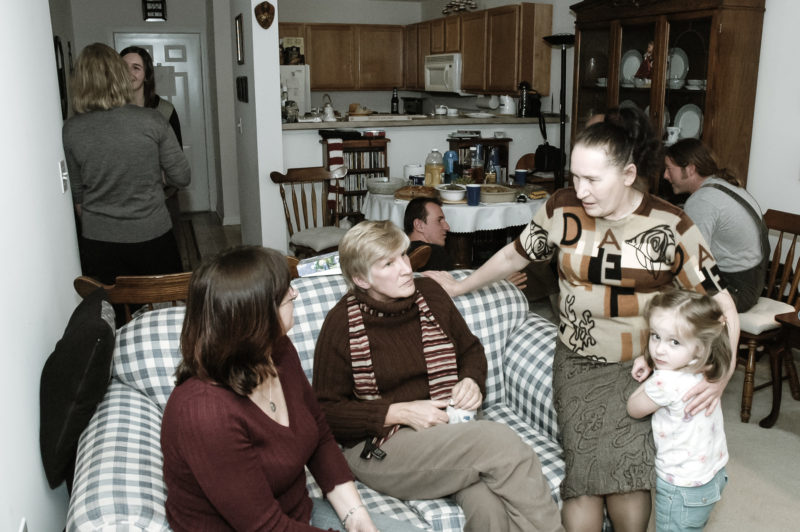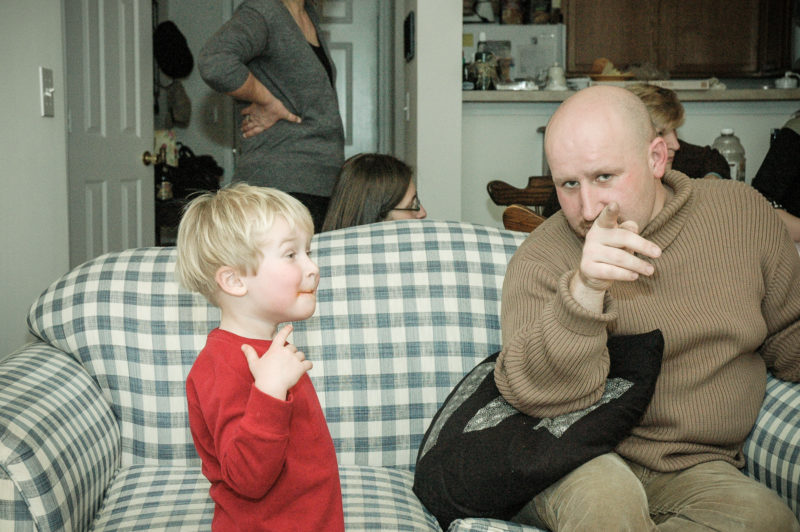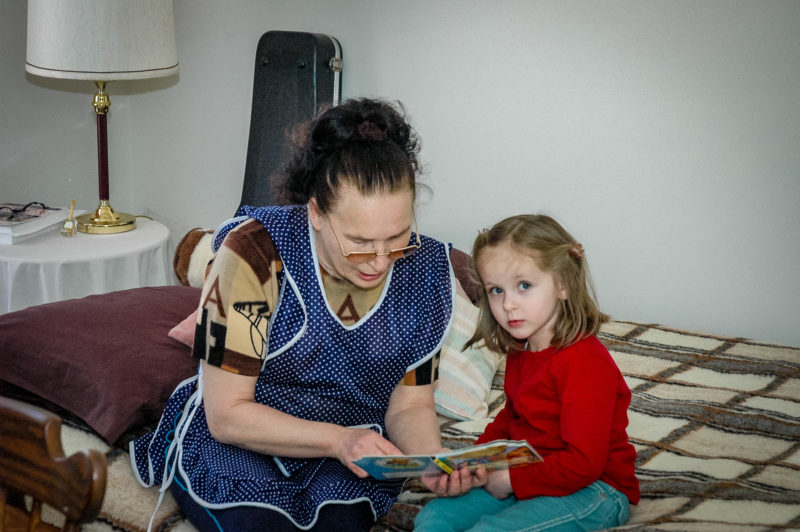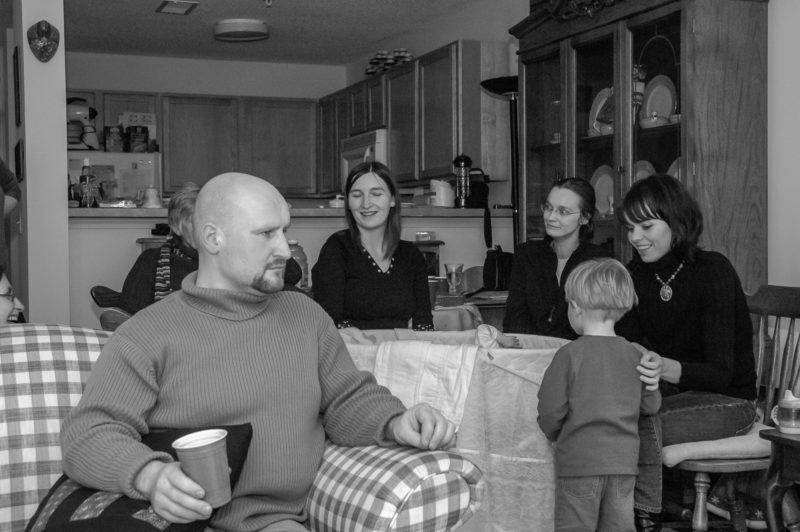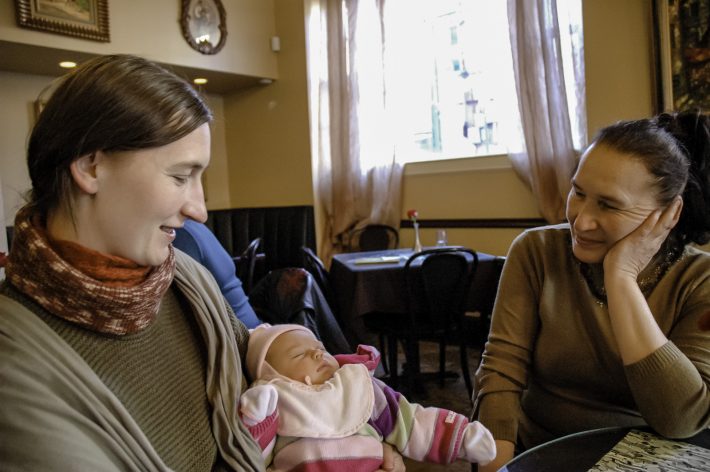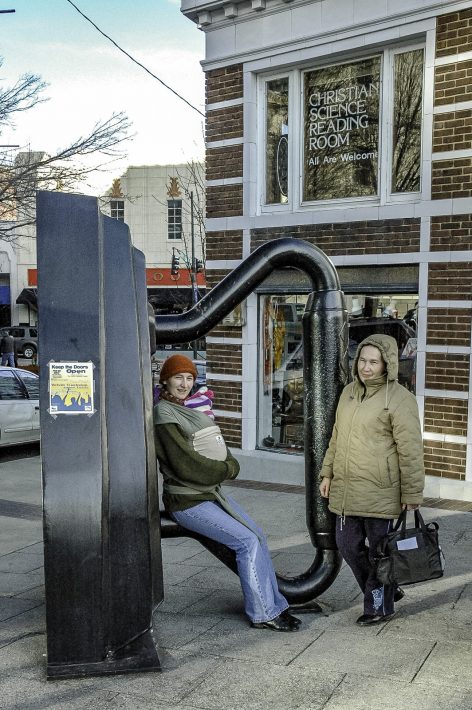K is a cartographer. As such, she has an abiding interest in maps. As such, we have a very nice map of the region of Poland where she comes from (and where I lived for seven years) hanging in our forayer.
L is turning into a smiler. It’s gone from “Honey, come quick! She’s smiling!” to a many-times-a-day occurrence. In fact, she smiles on-cue now. Sort of.
Whenever we hold L so that she can see our forayer map, she smiles — 99% of the time. We’ve caught it on video a couple of times.
The question is, what is so fascinating for her about that map? It has nothing but muted earth-tones; it is extremely low-contrast; it is very detailed — all the things a baby L’s age are not supposed to find particularly interesting. But she loves it — she comes closest to laughing when looking at it.
Maybe she senses that mom’s a cartographer. Maybe she senses that its a representation of her roots. Maybe she just gets off on low-contrast images…
